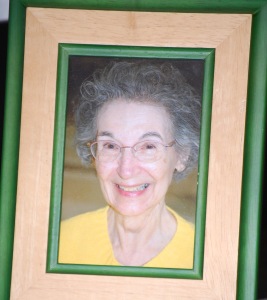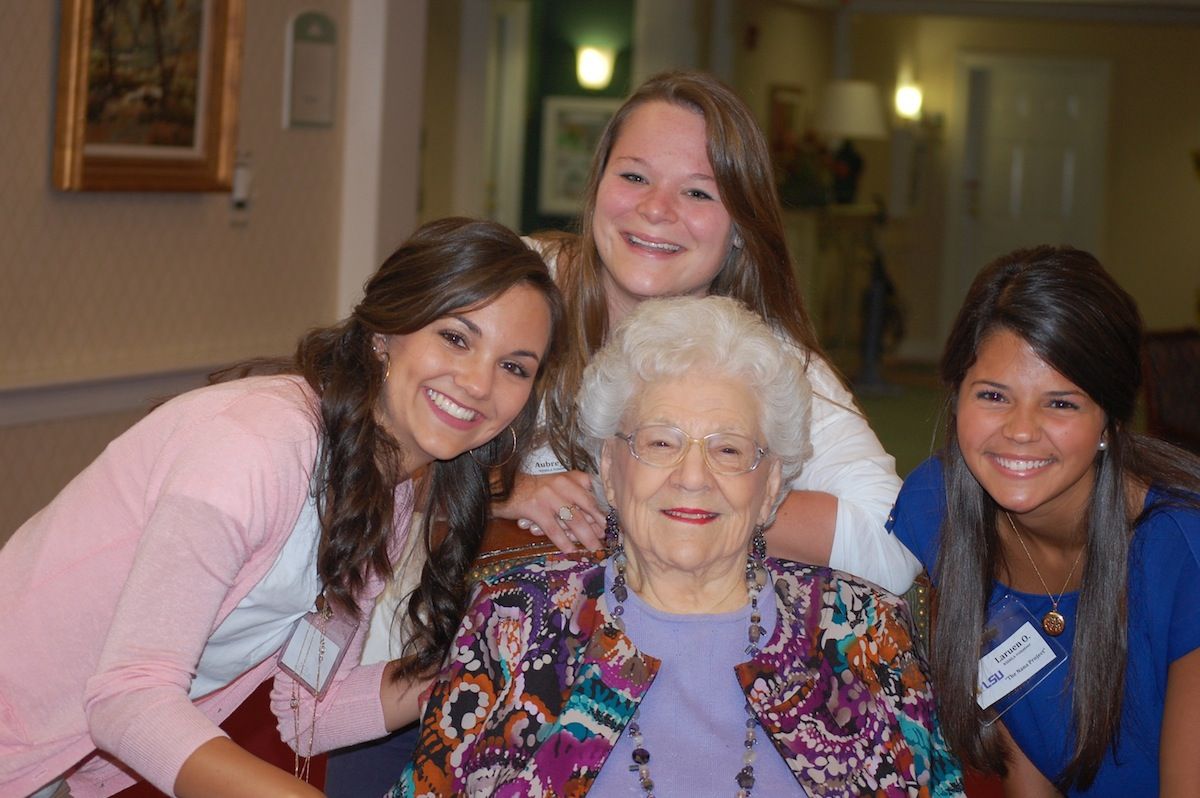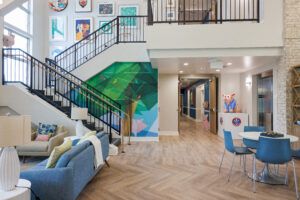The nana diaries
Residents of assisted-living facilities often long for more visitors and friendly conversation. Students in LSU’s Department of Communication Sciences and Disorders need practice interacting with people who might have hearing or cognitive problems. An innovative program is helping both groups in a very personal way.
The Nana Project began after Wendy Jumonville, coordinator of clinical services at LSU’s Speech, Language, Hearing Clinic, witnessed the experience of her own mother, Mary “Nana” Abshire, at a local care facility. It became apparent to Jumonville that residents in assisted-living centers could benefit from student visits and socialization.

“Wendy came to me to encourage undergrads to visit with the patients and provide communication, companionship and stimulation for the residents,” says Shannon Farho, who now heads the project and is faculty adviser for LSU’s undergraduate chapter of the National Student Speech Language Hearing Association. This project became a win-win for both the college students and the seniors. The students interact with St. James Place residents and are exposed to a population with a wide range of cognitive, hearing and mobility limitations. At the same time, residents light up when they see the students and enjoy the time they spend together.
This semester, the Nana Project has 11 volunteers who visit the facility regularly. Once volunteers are identified, they work with Cori Lanclos, the community relations counselor at St. James Place. “Our goal would be to increase the number of volunteers to bring the Nana Project to another site,” Farho says. Due to publicity from a feature on a local TV news program, another Baton Rouge assisted-living center has already contacted the LSU group to seek its service; after additional volunteers are recruited and trained, organizers hope to expand the Nana Project in the spring semester.
Jumonville and Farho recently presented a program on the Nana Project at a conference for clinical educators at the University of North Carolina at Greensboro, and at least five different universities in the Southeast reached out to take the first steps toward adopting the initiative. Word is spreading as the Nana Project continues to make a difference in the Baton Rouge community and beyond.












